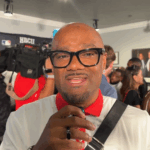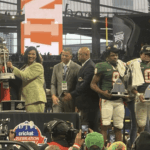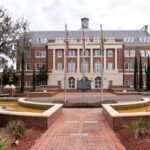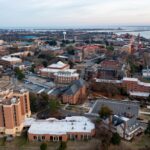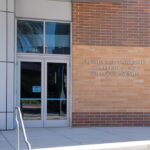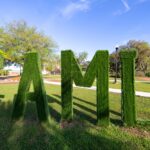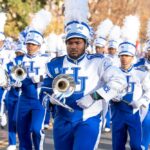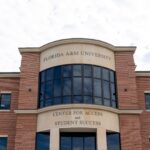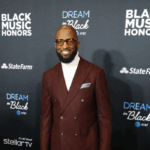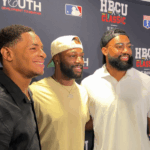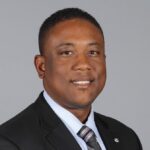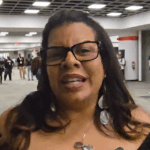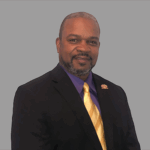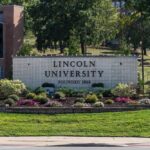
From tragedy to tech triumph
Skánia Florestal’s senior year of high school should have been filled with college acceptance celebrations. Instead, the Boston native was grappling with devastating personal loss that temporarily shattered her academic dreams. What seemed like a career-ending setback became the foundation for building one of the most innovative HBCU alumni network platforms in the country.
Today, Florestal’s HBCU MADE serves as a digital bridge connecting thousands of alumni and current students from historically Black colleges nationwide. Her platform addresses a critical gap she discovered firsthand: the struggle HBCU graduates face maintaining professional connections after leaving campus.
The journey from grief-stricken teenager to tech entrepreneur began with an unexpected phone call from Virginia State University, offering substantial financial aid and a supportive community that would reshape her entire trajectory.
Virginia State University changes everything
When college acceptances arrived during her senior year crisis, Florestal faced difficult choices about her academic future. Virginia State University emerged as the clear frontrunner, not because of prestige or location, but because of the comprehensive support package and genuine care the institution demonstrated.
“I didn’t choose Virginia State. Virginia State chose me,” Florestal explained, reflecting on how the HBCU alumni network at VSU recognized her potential despite her circumstances.
Initially planning to transfer after just one semester, Florestal discovered something unexpected on VSU’s campus: a vibrant culture that celebrated academic excellence alongside community connection. She ended her first semester with a 4.0 GPA, marking a dramatic turnaround from her earlier struggles.
Student organizations deepen HBCU connection. Florestal immersed herself in campus life through organizations like The Betterment of Brothers & Sisters Incorporated, experiences that deepened her understanding of HBCU legacy and community building. These involvement opportunities revealed the power of peer networks that would later inspire her entrepreneurial vision.
The transformation from reluctant student to campus leader demonstrated how supportive environments can unlock potential that might otherwise remain dormant. Florestal’s experience became a template for the community-building philosophy she would later implement through HBCU MADE.
Professional world exposes networking gaps
After graduation, Florestal entered the professional world expecting to maintain the strong connections she had built during college. Instead, she discovered that HBCU alumni often struggled to stay connected with former classmates and mentors, typically relying on annual homecoming events or sporadic alumni gatherings to rekindle relationships.
This realization sparked a deeper investigation into systemic challenges facing HBCU graduates in professional settings. Many alumni reported feeling isolated in predominantly white workplaces, lacking the peer support networks that had sustained them during college.
“The goal of HBCU MADE is to roll out that red carpet for each other, but if we don’t know each other, then how can we do that and be that support system?” Florestal explained. “I just took all of those pain points from my own experience and put them into this platform where we can share our stories.”
Personal experience drives platform design. Rather than developing abstract solutions, Florestal built HBCU MADE around specific challenges she had personally encountered or witnessed among fellow alumni. This user-centric approach ensures the platform addresses real networking barriers rather than perceived problems.
The timing proved fortuitous as social media platforms increasingly failed to serve professional networking needs effectively, creating market demand for specialized solutions targeting specific communities.
HBCU MADE transforms alumni connections
HBCU MADE functions as more than a traditional networking platform, operating instead as a comprehensive ecosystem for storytelling, professional development and community building among HBCU alumni network members. The platform facilitates year-round connections rather than limiting interactions to special events or predetermined schedules.
Florestal designed the platform to embody what she calls “collective identity” among HBCU graduates, recognizing that shared experiences create stronger professional bonds than generic networking approaches. Users can share career stories, seek mentorship, offer opportunities and celebrate achievements within a culturally relevant environment.
The platform’s success reflects growing recognition that professional networking works most effectively when it builds on existing cultural connections and shared experiences. HBCU MADE leverages the pride and community spirit that characterizes historically Black institutions to create lasting professional relationships.
Movement mentality drives engagement. “It’s not just a cute name. I am HBCU MADE. We are HBCU MADE,” Florestal emphasized, highlighting how the platform cultivates collective ownership rather than individual transactions. This philosophy transforms routine networking into community activism.
The approach resonates particularly strongly with HBCU alumni who often feel marginalized in traditional professional networking environments dominated by graduates from predominantly white institutions.
Empowering next generation through shared stories
Florestal’s vision extends beyond connecting existing alumni to actively supporting current HBCU students and recent graduates entering competitive professional markets. The platform serves as a repository of success stories, career guidance and practical advice from alumni who have navigated similar challenges.
By emphasizing storytelling alongside networking, HBCU MADE helps users understand that career advancement often requires community support rather than individual achievement alone. The platform demonstrates how shared experiences can become professional advantages when properly leveraged.
Current students gain access to mentorship networks and career insights that might otherwise remain unavailable until after graduation. This early intervention approach helps students make more informed decisions about coursework, internships and career planning while still on campus.
Legacy building through community investment. Florestal positions HBCU MADE as a legacy project that strengthens the entire HBCU ecosystem rather than benefiting individual users exclusively. This broader mission attracts alumni who want to give back to their institutions and support emerging leaders.
The platform’s growth reflects increasing recognition among HBCU alumni that collective action produces better outcomes for community members than individual networking efforts alone.
Sort By
 Register for exclusive access to VIP events and more
Register for exclusive access to VIP events and more
Sign up for periodic updates, special discounts, and more!



